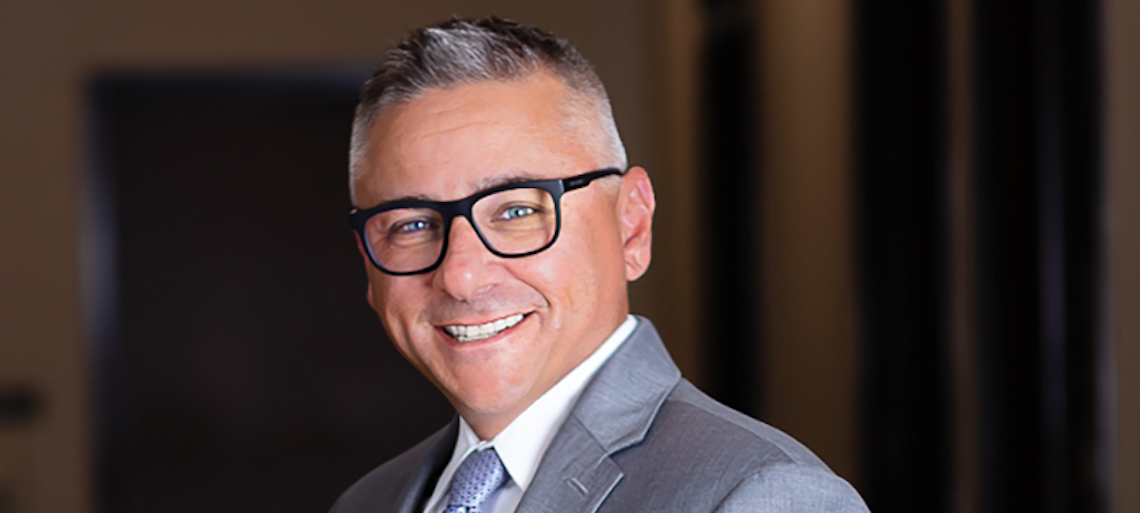
Justin Preas, who at the beginning of 2024 marked one year as president and CEO of United Health Centers, said the health system’s growth is driven by growing demand for services.
Written by Ben Hensley
For Justin Preas, last year marked the first year as president and CEO of United Health Centers. Elevated to the position following the retirement of his predecessor, Colleen Curtis, Preas oversaw the opening of a number of new health centers last year — three to be precise — with several groundbreakings for upcoming health centers expected to open this year and next.
Preas said the driving force behind the opening of the centers is the continued needs of the community.
“The biggest issue is demand,” he said. “We do a lot of due diligence up front that actually starts years before we open a location.”
That time is spent determining where there is unmet need — a lack of doctors in the area and a lack of accessible services.
“There’s just such a shortage of health care services, especially for the underserved people in the Central Valley,” he said. “It’s staggering that we open a new health center and it’s busy [on] day one. We don’t have this ‘ramp-up’ period where we attract patients and educate the community.”
Preas echoed UHC’s long term goals, highlighting the opportunity of UHC to bring multiple services under one roof and creating a health care environment where preventative care is emphasized as a means of keeping patients out of hospitals and in healthy shape.
The next generation
As a health care provider seeking to improve the quality and availability of health care options in the Central Valley, UHC actively trains future physicians, nurses and health care employees in several different training and intern programs.
UHC is an active participant as a teaching site for the University of California San Francisco, annually graduating five third-year family practice physicians. Led by Dr. Juan Ruvalcaba, MD, the program has helped to retain more than 60% of graduates as Valley providers.
Additionally, UHC participants in the Physician Assistant Residency Program from California Health Sciences University and the A.T. Still University Central Coast Physician Assistant Training Program.
UHC’s Medical Education Program, led by Dr. Sharareh Shabafrooz, DO, oversees the practice of future health care professionals in a variety of pre- and post-graduate residency programs. The program, which comprises around 50 coaches and more than 165 future clinicians, takes place across the more than 30 UHC clinical training sites.
With more than 180 staff clinicians providing services to its more than 160,000 patients, UHC coordinates nearly 1 million appointments annually, further emphasizing the need to retain local health care students and established practitioners.
What does the future hold?
In the years after the COVID-19 pandemic, Preas said that UHC has taken away several lessons that continue to improve the provider’s care to this day.
“During the pandemic we were, as most health care providers were doing, running two health care entities,” he said. “We were running a Covid-care center and then we were running a health center for all of those other needs.”
Preas said that the ability of UHC to maintain flexibility, continuing to utilize telehealth appointments for instance, has made it easier for patients and doctors to handle small checkups or consultations remotely, clearing space in UHC’s centers for patients that need to be seen in-person.
“We also learned the importance of vaccinations,” Preas said. “For so long we took for granted the vaccinations that have been afforded us in this country for so many years.”
Preas said that UHC has made an emphasized focus on their patients being vaccinated to prevent a variety of illnesses ranging from chicken pox to influenza and even COVID-19.
In addition to its work in Fresno, Tulare and Kings counties, UHC will soon expand further, continuing to reach underserved populations struggling to find health care options.
“We have a lot of projects underway in Fresno and we also are just getting ready to start construction of a new location in Delano,” Preas said. “That will be our first location in Kern County.”
UHC will also soon partner with PACE — a medically-based day care and primary care facility for elderly patients on Medicare. Preas said the new facility, which will be a 20,000 square-foot facility in Downtown Fresno, will serve approximately 300 PACE participants.
“It’s sort of like day care for the elderly where they can come in and have certain services…such as helping with laundry services, making sure that they’re fed and eating correctly.”
Despite the continued expansion, however, UHC is not done; as the need in the Valley for accessible health care options remains a challenging obstacle to overcome, UHC will continue to expand, meeting the needs of its current and future patients.
“We’ve grown a lot over these last ten to 15 years, but it’s because the need is there,” he said. “That’s what drives it — being there and making not only people better, but making our community better — to provide those basic services that everyone deserves.”








